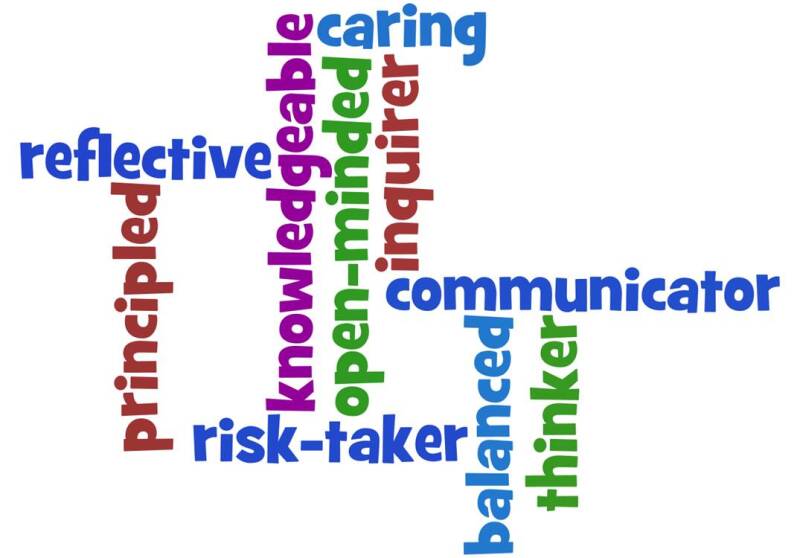The International Baccalaureate (IB) education is grounded in a set of principles and pedagogical approaches that aim to foster holistic, inquiry-based learning. Here are the key principles and pedagogy that guide an IB education:
1. Inquiry-Based Learning
-
IB encourages students to take an active role in their learning by asking questions, exploring, and seeking answers through investigation and exploration. This method promotes curiosity and deepens overall understanding.
2. Student-Centred Approach
-
The focus is on the student as the central agent of learning, fostering autonomy and critical thinking. Teachers act as facilitators, guiding students in their learning journey.
3. Holistic Development
-
IB education aims to develop students intellectually, emotionally, and socially. It emphasizes the importance of the whole person, including their ethical, physical, and emotional growth.
4. Conceptual Understanding
-
Students are encouraged to understand concepts rather than just memorize facts. This allows them to apply their knowledge in different contexts and to engage with abstract thinking.
5. Global Awareness and Intercultural Understanding
-
The IB emphasizes the importance of understanding and respecting diverse perspectives. Students are encouraged to think globally, act locally, and be open-minded and reflective about their cultural and ethical beliefs.
6. Critical Thinking
-
IB education challenges students to think critically and independently, analyzing and evaluating information from multiple perspectives. This develops students' ability to make well-informed decisions.
7. Action and Service
-
The IB places importance on taking action based on learning, especially through the creativity, activity, and service (CAS) component of the Diploma Programme (DP). This helps students apply what they learn to real-world issues and make a positive impact on their communities.
8. Interdisciplinary Learning
-
IB encourages connecting ideas across different subjects. The approach integrates knowledge and skills from various disciplines, helping students to recognize the connections between them.
9. Collaborative Learning
-
Collaboration and teamwork are core to the IB pedagogical model. Students work together to solve problems, share ideas, and learn from each other, which fosters communication and cooperative skills.
10. Assessment for Learning
-
Assessment in IB is seen as an ongoing process, with a focus on understanding and improvement rather than just grades. Teachers use formative and summative assessments to track and support student progress, encouraging reflective thinking and self-assessment.
11. International Mindedness
-
The IB promotes the development of international-minded individuals who appreciate the interconnectedness of the world. Students are encouraged to engage with global issues and become responsible citizens who contribute to a better, more peaceful world.
These principles work together to create an educational experience that is challenging, engaging, and empowering, helping students become lifelong learners and responsible global citizens.
How is International Open-Mindedness Incorporated into the IB Diploma Programme?
International open-mindedness is the ability to understand, respect, and value different cultures. Students are encouraged to appreciate differences, to consider multiple perspectives and to appreciate personal history.
Open-minded students recognize that people are different and celebrate those differences. They seek out and evaluate a range of points of view, and are willing to learn from the experience. They critically appreciate their own cultures and personal histories, as well as the values and traditions of others.
The IB DP is a curriculum framework for students in the last two years of high school. The IB curriculum is standardized worldwide, which allows students to transfer between schools with few academic issues. Students who graduate with the IB diploma can often study at universities around the world with advanced credit.

What Are the 10 Characteristics of an IB Learner?
The 10 characteristics of an IB student are outlined in the IB Learner Profile, which highlights the qualities that IB students are encouraged to develop. These are:
-
Inquirers – IB students develop their natural curiosity, asking questions and seeking out knowledge independently, with a spirit of exploration.
-
Knowledgeable – They acquire in-depth knowledge across a broad range of disciplines and make connections between different areas of study.
-
Thinkers – IB students apply critical and creative thinking skills to solve complex problems, both independently and in collaboration with others.
-
Communicators – They express themselves confidently and creatively in more than one language, and are also active listeners, understanding and sharing ideas effectively.
-
Principled – They act with integrity and honesty, taking responsibility for their actions and respecting the dignity and rights of others.
-
Open-minded – IB students are open to considering perspectives, values, and traditions different from their own, and they appreciate the diversity of the world.
-
Caring – They show empathy, compassion, and respect for others, and are committed to making a positive difference in the world.
-
Risk-takers – IB students approach uncertainty with confidence and resilience, and are willing to take thoughtful risks to explore new ideas and experiences.
-
Balanced – They understand the importance of balancing academic pursuits with physical, emotional, and social well-being, striving for a healthy and fulfilling life.
-
Reflective – IB students regularly reflect on their learning experiences and personal development, understanding their strengths and areas for growth, and using that insight to improve.
These attributes help students become more globally-minded, self-aware, and capable of navigating a complex and interconnected world.